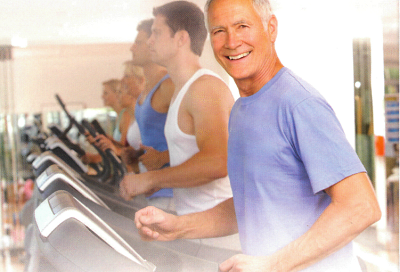


When you have diabetes, the best way to know how any exercise affects you is to check your blood sugar before, during (when possible) and after the exercise. Your doctor will tell you what the right ranges are for you. Once a pattern is detected (such as "swimming always makes my blood sugar fall"), more accurate insulin and food changes can be made.
Sometimes blood sugar goes up with exercise. This may be because of output of the hormones glucagon and adrenaline (epinephrine), which is a normal response in people with or without diabetes. These hormones cause sugar to be released from the liver, which stores and raises the blood sugar for varying periods of time.
Keeping good records is important so that when similar exercise is done at a similar time of the day (with the same insulin peaking) and with a similar starting blood-sugar level, the best plans for insulin changes can be made. The overall effect of activity is to lower blood-sugar levels.
If you are going to exercise around mealtime, you should eat the meal first. When possible, allow a half hour for digestion. Liquids such as milk and juices are absorbed most rapidly. Solid foods, more slowly.
Some people become frustrated with the "ups and downs" of blood sugars during exercise. It is important to remember that diabetes is a compromise. One must put up witht the changes in blood sugars in return for a healthier heart, lungs, etc. Of course, you'll want to talke with your doctor about exercising, and checking your blood sugar, when you have diabetes.
-Source: University of Colorado, Denver
Good Neighbor Pharmacy Health Connection, December 2013